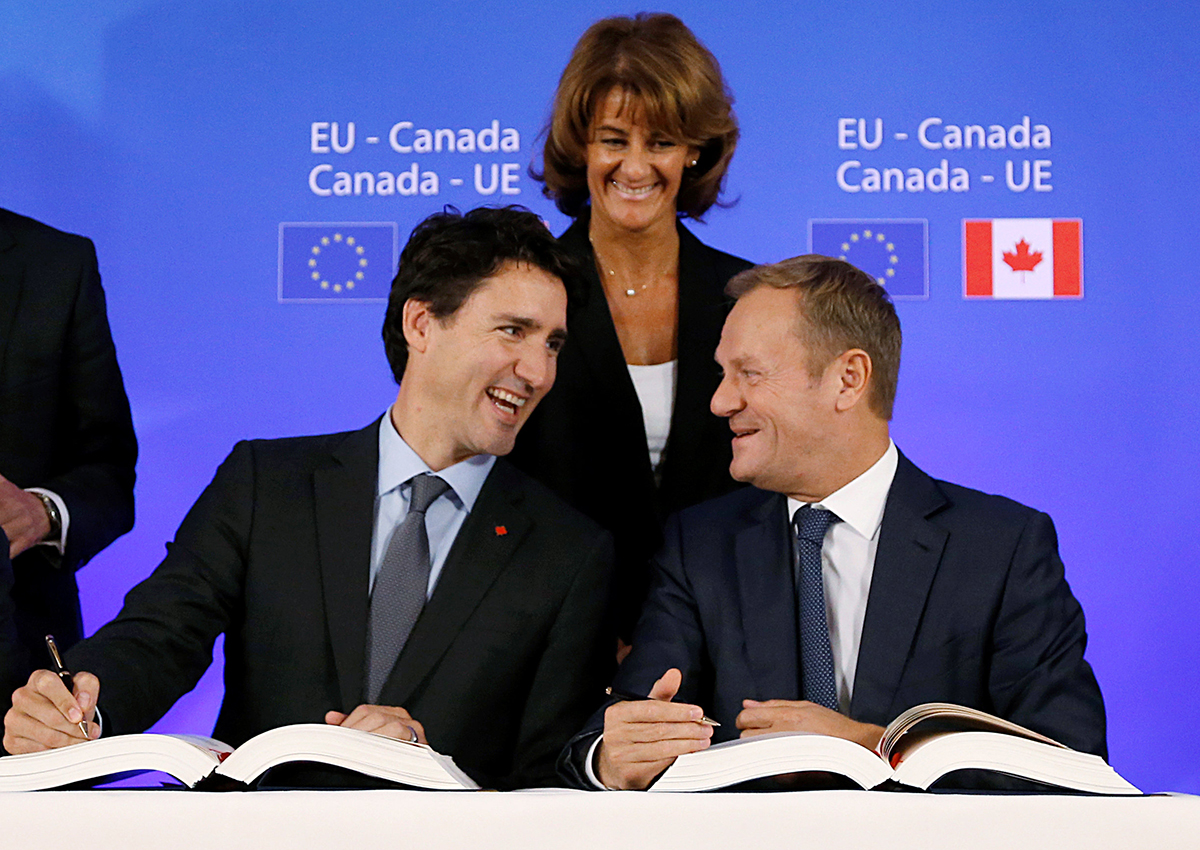The planned EU-Canada free trade deal cleared a hurdle to its implementation next year when the European Parliament rejected a motion on Wednesday to ask the top European Union court to rule on its legality.

The vote by lawmakers in the parliament is an indication they will also ultimately back the EU-Canada Comprehensive Economic and Trade Agreement (CETA) itself, allowing it partially to enter force early in 2017.
READ MORE: Belgium has backed Canada-EU trade deal, what does that mean for you?
The motion was brought by 89 members of parliament from the Greens and left-wing groupings, Italy’s anti-establishment 5-Star Movement, along with 31 Social Democrats and two liberals. It was rejected by 419 to 258 votes.
The group had wanted the court to assess whether the trade deal’s proposed investor court system is compatible with EU laws. They argued it contravened provisions that companies should be treated like normal people in law and rules on the operation of national and EU courts.
WATCH: CETA: Freeland ‘delighted’ deal counters US ‘protectionist backlash’

The court could have ruled that CETA breached EU law but even if it had not, it would have led to a delay to the implementation of up to two years.

Get breaking National news
READ MORE: CETA may be signed but trade deal not sealed and delivered just yet
CETA supporters said that the parliament’s own legal service had ruled that the 1,598-page CETA text was in line with EU rules.
The investor court system, involving separate panels to decide on disputes between states and foreign investors, has been the focus of opposition to trade deals such as CETA. Critics say it gives multinationals the ability to dictate public policy, such as on the environment, labor or health.
WATCH: CETA signing a ‘historic moment’ for Canada: Freeland

CETA has had a rocky ride since it was agreed in 2014. Seen by critics as the “little brother” of the planned EU-U.S. TTIP trade deal, it has been the subject of large protests and was only signed by the EU’s 28 members after opposition from a region of Belgium.
European Parliament assent would allow CETA to enter force provisionally, meaning import tariffs would be cut or removed. However, full implementation to include the contentious investment protection system would only happen after clearance by more than 40 national and regional parliaments.
- The British Museum says it is partly closed after a fired employee shut down IT systems
- Elon Musk posts multiple Nazi-related ‘jokes’ after salute backlash
- U.S. freezes nearly all foreign aid program funding after Trump order
- Hamas frees 4 female Israeli soldiers as part of the Gaza ceasefire in exchange for 200 prisoners







Comments